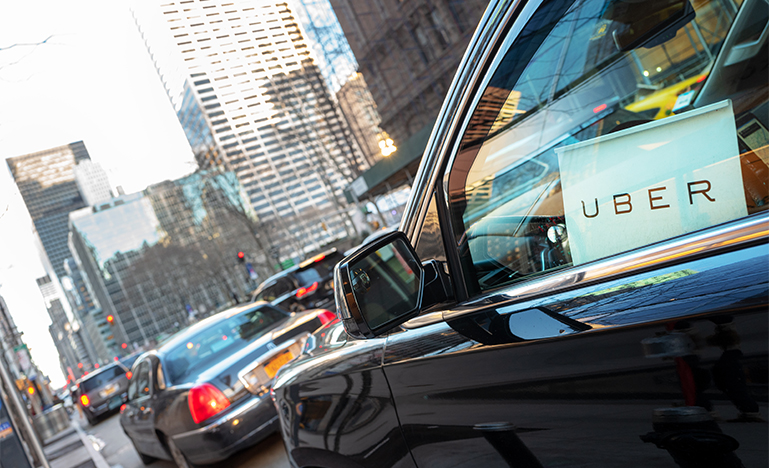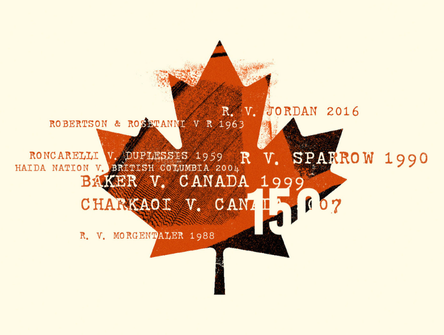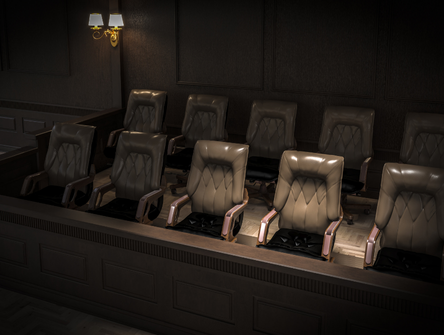An unfair bargain
It’s the Supreme Court of Canada’s turn to weigh in on Uber’s mandatory arbitration clause for its workers.

We’ve all done it. We’re downloading a software update or an app, and up pops some opaque blob of legal boilerplate outlining terms and conditions, followed by a ‘click yes if you agree’ tab. And we click it without reading the fine print, because life is short.
Usually, it works out fine — until it doesn’t. This fall, the Supreme Court of Canada is expected to hear an appeal of a Court of Appeal for Ontario ruling that shot down Uber’s arbitration clause as both illegal and ‘unconscionable’ by common law. It’s a case that started with someone reading the fine print, and could end with some fascinating implications for the gig economy.
David Heller lives in Ontario, has a high school education and, at the time of his appeal court hearing in 2018, was using Uber’s app to earn between $400 and $600 a week providing food delivery services in Toronto. To use the app, he had to click ‘yes’ on a services agreement with Uber that includes, among other terms and conditions, an arbitration clause.
In 2017, Mr. Heller launched a proposed class action seeking a declaration that Ontario residents who have used Uber’s app to provide transportation or food services are employees of Uber (not, to use Uber’s wording, “independent contractors”) and that. As a result, Uber’s arbitration clause amounts to an illegal contracting-out of the company’s responsibilities under the provincial Employment Standards Act. He’s seeking $400 million in damages.
Uber Technologies is incorporated in Delaware. Uber B.V. uses Uber’s app tech outside the U.S., Brazil, and Australia; it’s incorporated in the Netherlands. Uber’s arbitration clause requires that disputes with drivers be settled through a mediation/arbitration process based in Amsterdam.
Once you add up all the non-refundable fees and administrative costs, bringing a dispute under this process would cost a driver about US $14,500, not counting airfare to and from Amsterdam and living expenses. According to the Court of Appeal, Heller was earning between $20,800 and $31,200 per year as an UberEATS driver, before taxes.
“When you peel back the onion, this arbitration clause basically requires people earning very little to somehow scrape together an awful lot of money for arbitration,” says Sean FitzGerald, an employment lawyer with Miles Davison LLP in Calgary.
Justice Paul M. Perell of the Ontario Superior Court of Justice treated Heller’s case as a straight-up matter of a contract freely entered into. Uber moved to stay Heller’s proposed class action in favour of the Dutch-based arbitration process; Justice Perell agreed.
The Court of Appeal disagreed, ruling unanimously that, for the purposes of the appeal, it could be assumed that Uber drivers are Uber employees and are covered by the Employment Standards Act. “As an Ontario resident,” Justice Ian V.B. Nordheimer wrote, “(Heller) is statutorily entitled to the minimum benefits and protections of Ontario’s laws. He should not be left in a situation where those benefits and protections are set by the laws of another country.”
But it was on the question of the arbitration clause’s “unconscionability” that the appeal court found the lower court had made “palpable and overriding errors of fact.”
“The Arbitration Clause represents a substantially improvident or unfair bargain,” Justice Nordheimer wrote. “It requires an individual with a small claim to incur the significant costs of arbitrating that claim under the provisions of the (International Chamber of Commerce) Rules, the fees for which are out of all proportion to the amount that may be involved.
“There is a significant inequality of bargaining power between the appellant and Uber – a fact that Uber acknowledges … I believe that it can be safely concluded that Uber chose this Arbitration Clause in order to favour itself and thus take advantage of its drivers, who are clearly vulnerable to the market strength of Uber. It is a reasonable inference that Uber did so knowingly and intentionally.”
What’s significant about the appeal court’s ruling, says Regina-based labour lawyer Ronni Nordal, is how it directly addresses the elephant in the room: the vast imbalance in bargaining power between companies like Uber and independent workers in the gig economy who use its software to eke out a living.
“This is the first time a court has really stressed that imbalance in bargaining power,” says Nordal. “What options do these people have, if they want to work? They have to click ‘agree’ on the terms. They’re in the same position many consumers are with respect to certain large companies.”
Large companies like Facebook, in other words. The appeal court decision cites at length the Supreme Court’s 2017 decision in Douez v. Facebook. In it, the SCC granted a B.C. woman leave to file a class action lawsuit against the social media giant — despite the clause in Facebook’s terms of service that said such disputes had to be settled in California.
The Douez decision, says Toronto-based labour lawyer Christopher Achkar, offers the clearest indication of which way the SCC might jump in Heller’s case.
“Douez does not require an applicant to prove they may lose in a certain forum in order to want to avoid it. Heller would not need to prove he’d lose in the Netherlands, which puts the heavier onus on Uber to prove its case at the SCC,” Achkar says.
Douez, he says, invoked a two-step test to determine jurisdiction for arbitration clauses. First, the company that drafted the clause must prove it’s relevant, clear, and enforceable. If it can do that, the second part of the test calls on the complainant to demonstrate that the clause is inappropriate or unfair — which is where the unconscionability argument comes in.
“If the SCC still believes in its views from Douez, (it’s) not likely to be warm to Uber’s arguments,” says Achkar. “They have made it clear that they regard these arbitration clauses as an attempt to douse the fires of litigation when it comes to their operations.”
It’s worth remembering that the Supreme Court will be ruling only on the appeal court’s decision to overturn the stay on Heller’s lawsuit. The bigger questions about the parlous status of gig work are matters for legislation — but the high court could end up goading governments into addressing the problem, says Nordal.
“(The appeal court) kind of jumps the gun on assuming Uber employees are employees of Uber, not independent contractors,” she says. “That hasn’t been established by the court yet.
“We all know employment has changed. Workers are being forced into contract arrangements that leave the bargaining power in the hands of the people who draft the contracts … (who) can tip the scales unreasonably in their favour. The court seems to be pointing us towards a policy question — it may be that we have to start thinking in terms of ‘workers’ rather than the narrow definition of ‘employees.’”
“The SCC often takes on cases where there is an issue of national significance at play,” says FitzGerald.
“How far should these companies be allowed to go in burying such clauses in these agreements, clauses that clearly work in their favour? I think the SCC is getting ready to render an important decision.”


